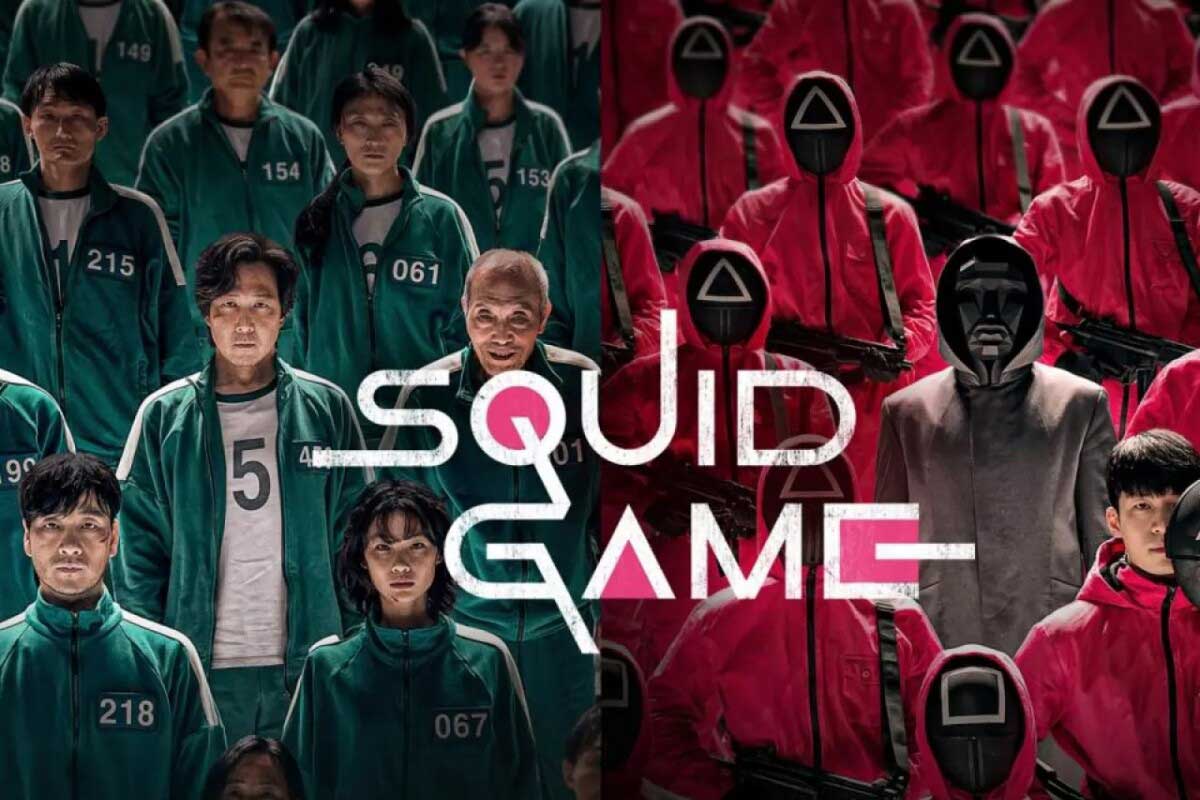The virus is still spreading two years later, but happily, the Korean entertainment industry has found a way to work around varied kinds of limitations to bring escapism to our TV screens – or, in the age of streaming, smartphones, and laptops. And what a year it was for K-dramas!
Also read: Korean youth group wants ban on airing of K-drama ‘Snowdrop’
The year 2021 was a watershed moment for K-dramas, with international blockbusters that kept us on our toes, down-to-earth romances that warmed our hearts, and some of the most twisted episodes to grace streaming platforms. Without further ado, here are our top five Korean TV shows from last year.
5. Yumi’s Cells
Season: one

Yumi’s Cells is based on a popular South Korean webtoon of the same name and follows the life of Kim Yumi (played by Kim Go-Eun) as seen through the eyes of her brain cells. The live-action sitcom is interwoven with terribly charming animated characters who interpret the action on screen (imagine Disney’s Inside Out if the protagonist was negotiating millennial challenges like office romances and spreadsheets).
Yumi’s Cells shows us the emotions at play during those moments, adding an extra layer of whimsy. Fans of romantic K-dramas will recognise classic tropes like extended looks of longing, hand-holding that lasts maybe a beat too long, and unspoken declarations of love, but Yumi’s Cells shows us the emotions at play during those moments, adding an extra layer of whimsy. It’s tough not to get swept up in the colourful charm of this funny little drama, which also stars Ahn Bo-hyun, SHINee’s Minho, and GOT7’s Park Jin-young.
Also read: K-drama ‘Snowdrop’ in trouble as investors dump K-drama over row
4. Vincenzo
Season: Limited series

This dark comedy about an ethnically Korean, Italian mafia consigliere was a K-drama that 2021 didn’t realise it needed – and that’s all for the better. What made Vincenzo a heartening watch was witnessing the trust and friendship that eventually formed between the Geumga Plaza inhabitants and their beloved ‘corn salad’ amidst character love-hate relationships, interesting twists, amazing easter eggs, and entertaining cameos. One can’t help but be happy for the Cassano Family’s progress by the end of the 20-episode series. The drama’s scene stealer, Inzaghi the pigeon, deserves special note.
Also read: Kim Seon Ho’s ex-girlfriend announces legal action against death threats
3. Move to Heaven
Season: one

The film Move To Heaven, which was inspired by an article by a former trauma cleaner, was renowned for its unique take on death drama. Instead of focusing on the moment of extinction, director Kim Sung-(Notebook ho’s 2018’s From My Mother) big-hearted series looked at the messy aftermaths through the eyes of father and son (and trauma cleaning duo) Jeong-woo (Ji Jin-hee) and Geu-ru (Ji Jin-hee) (Tang Joon-sang). The series presented a deep analysis of the human condition that made you reassess your own outlook, while treating Geu-diagnosis ru’s Asperger’s with respect and care — one of 2021’s most charming and unforgettable characters.
Also read: ‘Squid Game’ sequel in works, says creator Hwang Dong-huyk
2. Squid Game
Season: one

It’s little surprise that Squid Game was one of (if not the) biggest shows of 2021 — director Hwang Dong-nail-biting hyuk’s thriller series presents knife-sharp societal critiques through the not-so-inherent innocence of infancy. In this film set in modern-day Seoul, 456 impoverished strangers are offered the chance to win a whopping $45.6 billion, but there’s a catch: you have to win a series of traditional South Korean children’s games, but with terrible twists.
Through the perspective of Seong Gi-hun (Lee Jung-jae), a divorced man enslaved by debt, we witness the trials and sufferings of the games. Squid Game is a striking allegory for the problems of late-stage capitalism, and despite a hurried and predictable conclusion, this Korean series is nonetheless intelligent, highly purposeful, and binge worthy, keeping us on our toes for season two.
Also read: South Korean horror “Hellbound” overtakes “Squid Game” in popularity
1. Hellbound
Season: limited series

Does the fact that some of our best shows this year dealt with the disintegration of some of our primordial, inherent belief systems reflect something about us as a society? Hellbound’s terror was not as well-planned and obvious as Squid Game’s, but that didn’t make it any less scary.
As a society, we place a high value on forgiveness and second chances, believing that repentance will always lead to redemption, regardless of the wrongdoing. But what if those opportunities are taken away from us? What if being doomed turns into a lottery – and not a good one – and your agony becomes a source of entertainment for millions of people who project their fears and insecurities onto you as if they were stuck in a cruel game in which denouncing you would somehow exempt them?
Hellbound, in its brief (for now) run, exhibits cruelty that feels deliberate, instilling a sense of powerlessness and often revulsion at how things unfold — possibly more upsetting than the programme itself is the realisation that the characters’ actions are, after all, a reflection of human nature. Perhaps if we had been in their shoes, we might have acted similarly.







